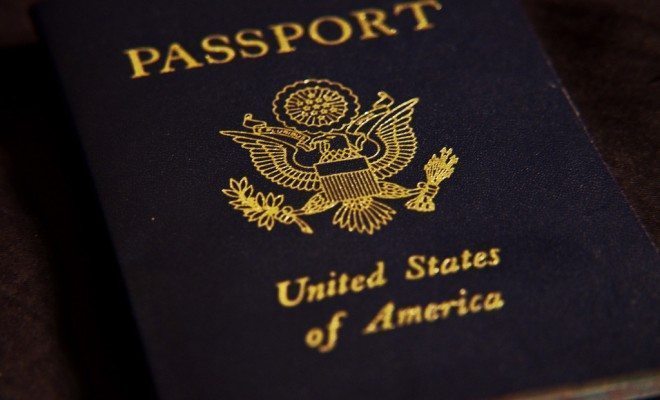 Image courtesy of [Kat via Flickr]
Image courtesy of [Kat via Flickr]
Law
Born in Israel? Not on Your American Passport
After 13 years, the Supreme Court has reversed a controversial law passed by Congress back in 2002. The issue with the law is that it gave American citizens born in Jerusalem the option to list Israel as their official country of birth on their American passports and birth certificates. Seeing that the recognition of foreign nations is entirely a political policy condition, the Supreme Court has decided that Congress should never have had the authority to make a law of recognition as they did in 2002 and therefore have struck it down, leaving powers of recognition to the president.
The outdated law previously stipulated that:
For purposes of the registration of birth, certification of nationality, or issuance of a passport of a United States citizen born in the city of Jerusalem, the Secretary shall, upon the request of the citizen or the citizen’s legal guardian, record the place of birth as Israel.
The law reversal stems from the prominent Zivotofsky v. Kerry case. More than a decade ago, the Zivotofsky family filed suit against the State Department after they were denied the option to list Jerusalem, Israel as the place of birth for their newborn son.
While under the separation of powers Congress does indeed play a vital component in making laws, major decisions on nation recognition has historically been left to the Executive branch. Looking back at precedent, it should be noted that the Supreme Court has allocated the power and exclusivity of recognizing a nation as being a privilege exclusively for the President.
The president has taken those absolute measures as a result of Congress accepting the recognition of power as exclusive of his office, and at times even defending the President’s constitutional prerogative. Additionally, the Executive branch often has access to confidential information that the legislative branch does not.
Foreign sovereignty expert Juan Basombrio, who is the Co-Chair of Dorsey & Whitney’s International Law Group, commented on the Supreme Court’s decision in a press release saying:
Expressly recognizing that the status of Jerusalem is ‘a delicate subject,’ the Supreme Court has relied on Separation of Powers principles to strike-down a United States statute, enacted by Congress in 2002, which conflicted with State Department policy. The Supreme Court has held that the question of who has sovereignty over Jerusalem must not be decided by the Congress or the Courts, but is within the purview of the Executive Branch, which has indicated that this is a matter to be resolved ‘not unilaterally but in consultation with all concerned.’ Today’s decision confirms former President George W. Bush’s statement, at the time of enactment of the referenced statute, that ‘U.S. policy regarding Jerusalem has not changed.’
Monday’s decision marks the end of an era of uncertainty over the loophole in the conflicting law that enabled American citizens born abroad to claim Israel as their country of identity. Basombrio makes a valid claim as he states that the decision should not involve American courts or Congress, granted that there are other political actors and nations involved; therefore the argument and decision should always remain with the Executive branch.
This decision is important because it demonstrates to the citizens of Jerusalem, as well as the rest of the world, that the U.S. will not be dragged into the identity crisis. Whereas the U.S. is often known for mediating terms between other nations, this time that is not the case. In reversing a 13-year clause, the Supreme Court has sent a message to Israel that the U.S. has no interest in intervening until the nations involved in the identity dispute resolve their issue.








Comments